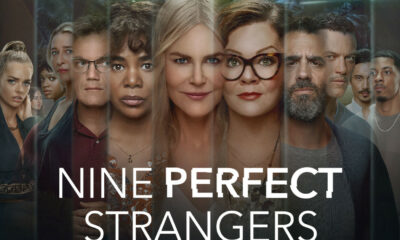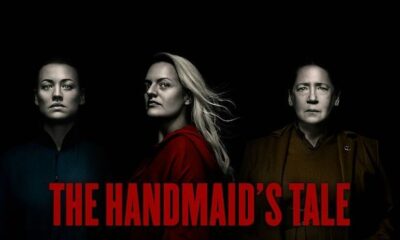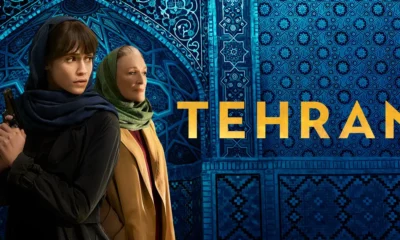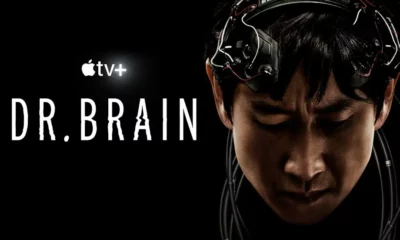Featured
Shaping Cinematic Dreams: The Vital Education Role for New Film Directors
Published
9 months agoon

Every year, cinema halls and streaming platforms worldwide release thousands of films, each bearing the distinct signature of its director. But behind the silver screen magic lies an intricate journey of knowledge, learning, and experience. Indeed, the path to becoming a director is as much about honing one’s craft as it is about understanding the world of cinema and the stories it seeks to tell.
However, while raw talent and passion are undeniable prerequisites, can they alone pave the way for cinematic brilliance? Or is there a more structured educational path that prospective directors should tread? As students are often swamped with academic commitments and think, “Should I just focus on my passion or do my assignment?” it’s essential to delve into the importance of formal education in the world of filmmaking.
Amidst a landscape where the line between passion projects and college assignments often blurs, recognizing the significant role of structured learning becomes pivotal. The dedication to one’s craft should walk hand-in-hand with a commitment to understanding the nuances through formal education. Let’s delve deeper into the topic.
Understanding the Art and Science of Filmmaking
Filmmaking is not just about having a creative vision. It’s about translating that vision onto the big screen. And this translation involves a plethora of technical aspects — from understanding camera angles, lighting, and sound to grasping editing techniques and post-production nuances.
A comprehensive film education offers students hands-on experience with these technical elements. Classrooms turn into mini-sets where budding directors can experiment, make mistakes, learn, and refine their craft. They’re provided with a sandbox, a controlled environment where they can understand the interplay of storytelling and technology.
Furthermore, formal education offers a platform to dissect, discuss, and appreciate cinematic masterpieces from around the world. It’s a space where theory meets practice, providing a holistic view of the filmmaking process.
Networking and Collaborative Learning
The film industry thrives on collaboration. From screenwriters and actors to cinematographers and producers, creating a movie is a collective effort. Film schools often become the breeding ground for such collaborations.
In these institutions, students find their tribe. They meet like-minded individuals, share ideas, and collaborate on projects. Such early collaborations often blossom into professional partnerships in the future.
Moreover, film schools and courses often invite industry professionals for guest lectures and workshops. Such interactions offer students a chance to network, gain insights, and even find mentors. This amalgamation of academic and professional worlds fosters an environment of robust learning and growth.
Cultural Sensitivity and Storytelling
In today’s globalized world, films often cross borders. Directors, therefore, need to be attuned to cultural nuances, ensuring that their storytelling is both authentic and relatable. This is where the educational aspect comes into play.
Courses in film often encompass modules on world cinema, cultural studies, and the anthropology of storytelling. Through these, students are exposed to diverse narratives, helping them understand the universality of human emotions while also grasping cultural specifics.
Moreover, the structured environment of a classroom facilitates discussions, debates, and critiques. Students learn not just from their professors but also from their peers, each bringing their unique perspective to the table. This exposure is invaluable in shaping directors who can tell global stories with a local touch.
Industry Preparedness and Real-World Exposure
Film schools often collaborate with the industry for internships, placements, and live projects. This industry-academia partnership ensures that students are not just confined to theoretical knowledge but are also exposed to real-world challenges.
Such exposure prepares students for the rigors of the industry. They understand the dynamics of a real set, the challenges of managing a crew, and the pressures of delivering under tight schedules.
Moreover, many reputed film schools have alumni networks spread across the industry. This not only opens doors for fresh graduates but also ensures a support system as they navigate the often tumultuous waters of the film world.
The Magic of Mentorship
One often underappreciated advantage of enrolling in formal film education is the chance to be mentored. Renowned directors, screenwriters, and producers often trace their lineage of knowledge back to influential figures who took them under their wing.
These mentor-mentee relationships, often forged in academic settings, can significantly shape a budding director’s approach and sensibilities.
Within the hallowed halls of a film school, students frequently find themselves under the tutelage of industry veterans. These seasoned professionals don’t just provide textbook knowledge; they share stories, industry secrets, and personal anecdotes that breathe life into the otherwise theoretical world of film studies. The weight of their experience and the wisdom therein can be immensely transformative for students.
Moreover, this relationship often extends beyond the classroom. Many students find lifelong advisors in their mentors, turning to them for guidance even as they establish themselves in the industry. These relationships become touchstones, offering both grounding and inspiration as new directors navigate their careers.
An Introduction to the Business Side
While creativity is the heart of cinema, one cannot overlook the business mechanics that power the industry. An area where film education excels is in offering students a grounding in the commercial aspects of filmmaking. This includes everything from understanding film financing, distribution strategies, and marketing nuances, to even grasping the legalities of film production.
Most young directors enter the world of cinema with a plethora of story ideas but with little to no understanding of how to monetize their projects or navigate contractual agreements. Film schools bridge this knowledge gap, ensuring that directors are equipped to protect their creative interests and also understand the marketplace.
With guest lectures from producers, distributors, and marketing experts, students gain insights into the often convoluted world of the film business. They are better prepared to pitch their projects, negotiate contracts, and build strategies to ensure their films reach the right audience.
Final Thoughts: The Director’s Chair Awaits
While the world of cinema celebrates the mavericks, the autodidacts, and the prodigies, the value of a structured film education cannot be understated. It equips aspiring directors with the tools, knowledge, and network to translate their cinematic dreams into celluloid reality.
Education in film doesn’t curb creativity; instead, it refines and enhances it. For all the students out there, balancing their academic pursuits with their passion for cinema, remember that every assignment, lecture, and classroom discussion is a step toward that coveted director’s chair. Your cinematic dream is valid, and the right education will only bring it closer to fruition.
Editor-in-Chief at DroidJournal. A tech-enthusiast, guitarist, and an anime fanboy!

You may like
Latest


Pretty Little Liars: Original Sin Season 2: Release Date, Trailer, and more!
Created by Roberto Aguirre-Sacasa and Lindsay Calhoon Bring, Pretty Little Liars: Original Sin is an American slasher teen drama mystery...


Hit-Monkey Season 2: Release Date, Cast, and more!
Created by Will Speck and Josh Gordon, Hit-Monkey is an American adult animated television series developed for Hulu. The executive...


Solar Opposites Season 5: Release Date, Plot, and more!
Created by Justin Roiland and Mike McMahan, Solar Opposites is an adult animated sitcom, made for Hulu. Roiland and McMahan...


Only Murders in the Building Season 4: Release Date, Trailer, and more!
Created by Steve Martin and John Hoffman, Only Murders in the Building is an American mystery-comedy streaming television series. It...


Reasonable Doubt Season 2: Release Date, Cast, and more!
Created by Raamla Mohamed, Reasonable Doubt is an American streaming legal drama television series. The executive producers of the show...


Tell Me Lies Season 2: Release Date, Plot, and more!
Created by Meaghan Oppenheimer, Tell Me Lies is an American drama streaming television series. It is based on the 2018...


Nine Perfect Strangers Season 2: Release Date, Cast, and more!
Created by David E. Kelley, Nine Perfect Strangers is an American drama television series based on the 2018 novel of...


The Handmaid’s Tale Season 6: Release Date, Cast, and more!
Created by Bruce Miller, The Handmaid’s Tale is an American dystopian television series. It is based on the 1985 novel...


Tehran Season 3: Release Date, Plot, and more!
Created by Moshe Zonder, Tehran is an Israeli spy thriller television series. Written by Zonder and Omri Shenhar and directed...


Dr. Brain Season 2: Release Date, Trailer, and more!
Created by Kim Jee-woon, Dr. Brain is a 2021 South Korean web series. The series is based on the Korean...
